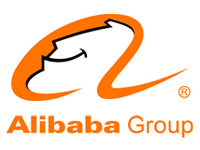
By all indications, the long-awaited, much anticipated initial public offering of Chinese e-commerce giant Alibaba Group Holding is imminent. Granted, similar rumors this spring turned out to be groundless, but this time the drumbeats for the IPO are louder and more insistent.
Whenever the IPO launches, it is clear that it will have a huge impact on the U.S. e-commerce space — and by extension the mobile retail subsector.
The Latest IPO Scuttlebutt
Alibaba is expected to begin marketing the IPO next week and tentatively will price it on Sept. 18. Trading will begin the following day. The offering is widely expected to be one of the largest IPOs ever, at around US$20 billion.
The Alibaba Group hosts a number of e-commerce destinations including Taobao, Tmall and AliExpress, as well as Alibaba. It has long been a B2B sourcing community for international buyers, typically small businesses that appreciate the vast array of wholesale activity on the site.
In more recent times, Alibaba has carved a heavy footprint with its growing number of consumer-oriented retailers. That is hardly a surprise, but few have been paying attention to the traction the company has been gaining with its mobile business.
A Surprising Surge
Its mobile momentum is not under the radar anymore, as its April-to-June quarterly report makes clear. Mobile transactions accounted for approximately one-third of its overall revenue of $2.54 billion, a 27.4 percent quarter-over-quarter increase. Alibaba’s total revenue increased by 46 percent for the quarter, on a year-over-year basis.
For the year ending 2013, Alibaba’s mobile gross merchandise valuation totaled $37 billion. Its mobile active users reached 136 million by December 2013.
“A significant portion of our customers have begun transacting on our mobile platform, and we are focused on capturing this opportunity,” Alibaba said in its filing. “In the three months ended December 31, 2013, mobile GMV accounted for 19.7 percent of our GMV, up from 7.4 percent in the same period in the previous year.”
All signs point to further growth. “We believe that the increased usage of mobile devices will make access to the Internet even more convenient, drive higher online shopper engagement and enable new applications,” the company said. “China has the world’s largest mobile Internet user base with 500 million users as of December 31, 2013 … and mobile usage is expected to increase, driven by the growing adoption of mobile devices.”
What It Means
There are implications for the U.S. mobile retail space as Alibaba prepares to list on a U.S. exchange.
The main one is that Alibaba will drive development and investment in the technologies that fuel the mobile retail space. Alibaba’s investments will have an impact, and competing companies in the U.S. and overseas will be forced to follow suit to stay competitive.
Also, look for further development in the B2B mobile sourcing space as Alibaba becomes more entrenched.
None of this will happen overnight. Alibaba doesn’t have much name recognition with U.S. consumers, and the company is unlikely to gain significant market share in the U.S. — at least not in the near term. A $20 billion IPO will attract some attention, however, and if the company continues to focus on its mobile monetization, its claim on the market surely will change as well.





















































